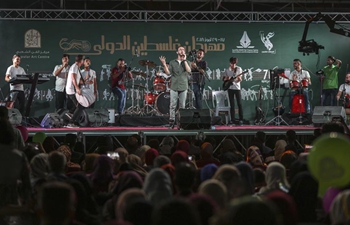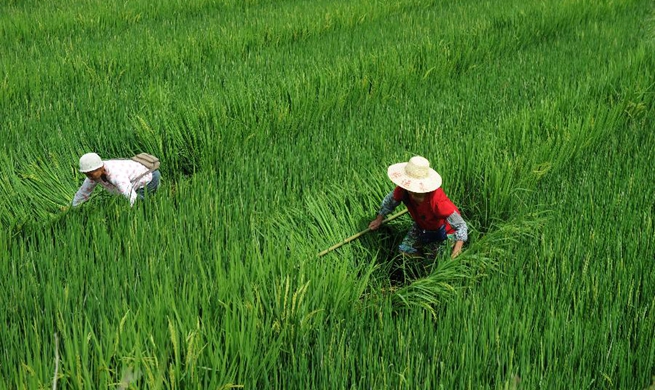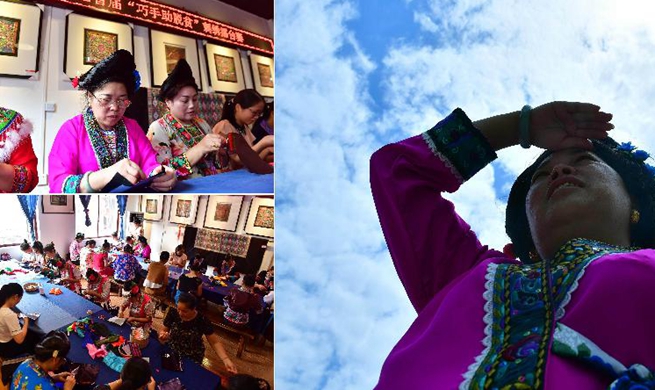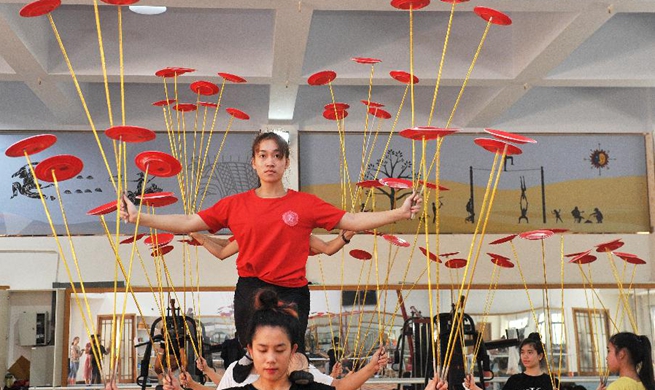UNITED NATIONS, July 30 (Xinhua) -- The Security Council is discussing the possible removal of sanctions against Eritrea given the latest positive developments in the Horn of Africa, said Swedish ambassador to the United Nations, whose country holds the Security Council presidency for the month of July.
"That issue is being discussed," Olof Skoog told reporters after closed-door Security Council consultations on Eritrea and Somalia.
The members of the Security Council welcomed the announcement that Eritrea and Somalia would work together to foster regional peace and stability. The council members reiterated their readiness to support the region in these efforts, said the ambassador.
Asked whether the council actually discussed the possible removal of sanctions against Eritrea, Skoog said: "That issue is being discussed. As I said in my statement on behalf of council members that there is readiness to support the region in these efforts. I think you should understand with that that there is readiness to move forward on that issue as well."
Ethiopia requested the lifting of UN Security Council sanctions on Eritrea after the two countries signed a historic Joint Declaration of Peace and Friendship on July 9 and agreed to normalize relations. Ethiopia has also offered to help Eritrea and Djibouti to resolve their border dispute and to normalize their relations as well.
The Security Council supports and encourages Ethiopia's efforts in this regard, said Skoog.
Earlier on Monday, before Security Council deliberations, Skoog expressed the hope that the Security Council could decide on Eritrea sanctions as soon as possible.
What is happening in the Horn of Africa is truly historic, he told reporters. "It is very important that we support those historically positive developments in any way we can."
"The Swedish point of view is that we need to be cautious not to set targets and benchmarks that hinder the current positive momentum, and instead really ensure that we allow Eritrea now to partake in the international arena and let peoples in the region enjoy the peace dividends. We believe that the council should seize this moment to firmly recognize peace and normalize the relations between the international community and Eritrea by deciding to review the sanctions regime as soon as possible."
But it appears that not all council members are keen on the lifting of sanctions against Eritrea.
Dutch deputy permanent representative to the United Nations Lise Gregoire-van Haaren said Monday that "all the criteria" should be examined in the review of the sanctions regime against Eritrea.
The latest positive developments in the Horn of Africa have created "a context in which we will have to review the sanctions regime," she told reporters.
But she added: "We have to look very closely at all the criteria in place for the sanctions regime on the basis of which we can decide whether to change them or not."
British ambassador to the United Nations Karen Pierce, whose country takes over the Security Council presidency for August, said the issue is something that the Security Council needs to discuss.
The developments in the Horn of Africa are positive and welcome, she told reporters on Monday. "At some point that will need to be reflected in what we do on sanctions. But the council hasn't had a full discussion of that yet."
Ethiopian ambassador to the United Nations Tekeda Alemu indicated that the Security Council should lift sanctions on Eritrea.
"It is Ethiopia's conviction that this welcome development (between Ethiopia and Eritrea) is not meant to be limited to the relations between the two countries," he told the Security Council. "Naturally, this new spirit also demands that no country should any longer be isolated. The council has an obligation here."
The Security Council imposed sanctions in 2009 on Eritrea, including an arms embargo, for its destabilizing role in neighboring countries, particularly its alleged support for al-Shabaab militants in Somalia and its territorial dispute with Djibouti.
Eritrea gained independence from Ethiopia in 1993 and the two countries fought a war between 1998 and 2000. Although a peace agreement was signed in December 2000, tensions had continued. The July 9 Joint Declaration officially put an end to war between the two long-time rivals.
The Security Council members on Monday strongly commended the historic signing of the Joint Declaration and the two countries' joint endeavor to ensure regional peace, development and cooperation, said Skoog, the Swedish ambassador.
















